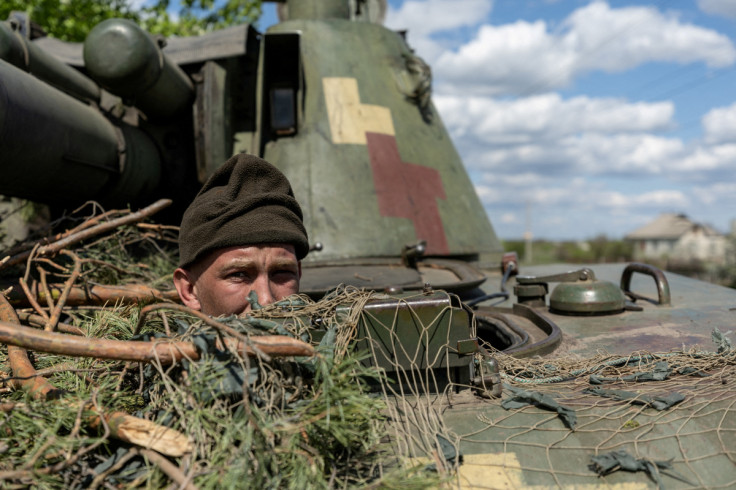Fearing War Fatigue, US Signals Ukraine To Show Openness For Talks With Russia: Report
KEY POINTS
- Washington has publicly vowed to support Ukraine "for as long as it takes"
- U.S. officials are impressed by Kyiv's harsh public rebuke at the prospect of talks with Moscow
- A recent poll revealed that 48% of Republicans think the U.S. is doing "too much" to support Kyiv
Amid fears of war fatigue setting in among allies as the war in Ukraine grinds on, Washington is reported to be privately encouraging Kyiv to show an openness for peace talks and drop its hard-line position of refusing to engage with Moscow for as long as Russian President Vladimir Putin remains in power.
The nudge from the Biden administration is not to force Ukraine to the negotiating table but a calculated attempt to make sure Kyiv maintains the support of other allies who are wary of fueling a long-drawn war, according to a report from the Washington Post, which cited unnamed officials who are familiar with the discussions.
While Ukrainian President Volodymyr Zelenskyy laid out proposals for a negotiated peace in the weeks following the Russian invasion on Feb. 24, officials in Kyiv have hardened their stance in recent months, particularly since late September. Following Putin's staged referendum and annexation of four Ukrainian regions — Donetsk, Kherson, Luhansk and Zaporizhzhia — in the east and in the south, Zelensky issued a decree declaring it "impossible" to negotiate with the Russian leader.
"Ukraine will not hold any negotiations with Russia as long as Putin is the president of the Russian Federation. We will negotiate with the new president," the Ukrainian president said.
However, Zelensky faces a double-sided challenge with the war having crossed its eighth month. Even as his defiance in the face of Russian aggression motivates his beleaguered nation to fight on, his maximalist goals may not be appealing to Western audiences who are facing their own economic battles with soaring inflation and energy prices.
The Washington Post report also noted that although Western officials are skeptical of Russia's aims, they are not impressed by Kyiv's harsh public rebuke at the prospect of talks with Moscow.
The report even pointed out that while growing inflation has made it tough for President Joe Biden and his party to face midterm elections on Tuesday, the results are expected to affect the future of the U.S. security assistance to Ukraine.
Washington's military aid to Ukraine has amounted to $18.2 billion since the war began on Feb. 24, and U.S. officials have publicly vowed to support Ukraine "for as long as it takes." However, based on the poll results published by the Wall Street Journal on Nov. 3, 48% of Republicans think the U.S. is doing "too much" to support Kyiv. The number was up from 6% in March.
Even within the Democratic Party, there are voices that are pushing for a diplomatic settlement of the conflict. The Congressional Progressive Caucus released — and later retracted — a letter that called on Biden to negotiate directly with Russia to bring an end to the war in Ukraine.
Meanwhile, National Security Adviser Jake Sullivan visited Ukraine on Nov. 4 to express Washington's "unwavering and unflinching'' support for Ukraine even after Tuesday's midterm elections. He announced an additional $400 million security assistance package, including refurbished T-72 tanks, unmanned aerial vehicles and the refurbishment of HAWK surface-to-air missiles for eventual transfer to Ukraine.
Speaking in Kyiv, Sullivan said the war could end easily. "Russia chose to start it," he said, as per the Washington Post report. "Russia could choose to end it by ceasing its attack on Ukraine, ceasing its occupation of Ukraine, and that's precisely what it should do from our perspective."
The Wall Street Journal then said in an exclusive report Sunday that Sullivan has had confidential talks with Putin's top aides over recent months in an attempt to prevent the war from escalating or expanding. These conversations have not been aimed at negotiating a peace agreement but at ensuring open lines of communication to reduce the risk of using non-conventional weapons, according to the report.

© Copyright IBTimes 2024. All rights reserved.






















